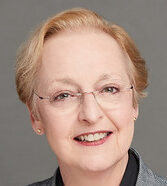The Society of Clinical Psychology maintains a list of empirically supported treatments (ESTs), using a set of requirements colloquially referred to as the “Tolin criteria” (Tolin et al., 2015). Under this practice, independent researchers may submit systematic reviews of treatments for consideration as an EST. As submissions have been coming in, a question was raised about whether all of these treatments should be considered psychological and therefore eligible for inclusion. Psychiatric medications, for example, might address psychological problems but are obviously not psychological treatments. What about treatments based on acupressure point tapping, eye movements, acupuncture, and so on? To address this thorny issue, the Society of Clinical Psychology assembled a task force charged with defining what psychological treatments are and are not.
The task force’s definition is: Psychological treatment is an intervention consisting of specific actions between a person or persons and a mental health professional or designee, with the intent of engaging cognitive, emotional, behavioral, or interpersonal processes, in the service of modifying health or functional outcomes, and whose core assumptions about its procedures and mechanisms of change are founded in psychological science and consistent with scientific understanding.
In our article below, we discuss the rationale behind each part of the definition, and list both positive and negative examples of various interventions.
Reference/Target Article
Tolin, D. F., Grasso, D., Boness, C. L., Beck, J. G., Keane, T. M., Leichsenring, F., Olatunji, B. O., Otto, M. W., & Weinand, J. (in press). A proposed definition of psychological treatment and its relation to empirically supported treatments. Clinical Psychology: Science and Practice. Preprint link: https://osf.io/preprints/osf/2w3j5
Discussion Questions
- Should psychological treatment be defined according to who provides it? That is, is anything a psychologist does a psychological treatment? Alternatively, if a non-psychologist provides a treatment, does that mean that the treatment is not psychological?
- Should anything that addresses a mental health problem (including things like medications) be considered psychological treatments?
- Should empirical support of efficacy be required before an intervention is labeled a psychological treatment?
About the Authors
 David F. Tolin, Ph.D., Is the founder and Director of the Anxiety Disorders Center at The Institute of Living and an Adjunct Professor of Psychiatry at Yale University School of Medicine. He is the Past-President of the Society of Clinical Psychology and Past-President of the Association for Behavioral and Cognitive Therapies.
David F. Tolin, Ph.D., Is the founder and Director of the Anxiety Disorders Center at The Institute of Living and an Adjunct Professor of Psychiatry at Yale University School of Medicine. He is the Past-President of the Society of Clinical Psychology and Past-President of the Association for Behavioral and Cognitive Therapies.
 Damion Grasso, Ph.D., is a licensed clinical psychologist and Associate Professor of Psychiatry and Pediatrics at the University of Connecticut School of Medicine. He currently serves as Secretary on the Society of Clinical Psychology Board of Directors.
Damion Grasso, Ph.D., is a licensed clinical psychologist and Associate Professor of Psychiatry and Pediatrics at the University of Connecticut School of Medicine. He currently serves as Secretary on the Society of Clinical Psychology Board of Directors.
 Cassandra L. Boness, Ph.D., is a Research Assistant Professor at the University of New Mexico Center on Alcohol, Substance use, And Addictions (CASAA). She serves as Co-Chair of the Society of Clinical Psychology’s Committee on Science and Practice.
Cassandra L. Boness, Ph.D., is a Research Assistant Professor at the University of New Mexico Center on Alcohol, Substance use, And Addictions (CASAA). She serves as Co-Chair of the Society of Clinical Psychology’s Committee on Science and Practice.
 Gayle Beck, Ph.D., is the Chair of Excellence Emerita in the Department of Psychology, University of Memphis and a Faculty Affiliate with the Department of Educational Psychology, University of Nebraska – Lincoln. She is a Fellow of the American Psychological Association, the Association for Psychological Science, the Association of Behavioral and Cognitive Therapies, and the Academy of Cognitive and Behavioral Therapies. She has served as a President of the Society of Clinical Psychology and the Association for Behavioral and Cognitive Therapies.
Gayle Beck, Ph.D., is the Chair of Excellence Emerita in the Department of Psychology, University of Memphis and a Faculty Affiliate with the Department of Educational Psychology, University of Nebraska – Lincoln. She is a Fellow of the American Psychological Association, the Association for Psychological Science, the Association of Behavioral and Cognitive Therapies, and the Academy of Cognitive and Behavioral Therapies. She has served as a President of the Society of Clinical Psychology and the Association for Behavioral and Cognitive Therapies.
 Terence M. Keane, Ph.D., is Director of the National Center for PTSD’s Behavioral Science Division, Associate Chief of Staff for Research at VA Boston, and Professor & Assistant Dean for Research at Boston University Chobanian & Avedisian School of Medicine. He’s served as President of the Society of Clinical Psychology, the International Society for Traumatic Stress Studies, the Association of VA Psychologists, the Division of Trauma Psychology of APA, the Anxiety and Depression Association of America, and the American Psychological Foundation.
Terence M. Keane, Ph.D., is Director of the National Center for PTSD’s Behavioral Science Division, Associate Chief of Staff for Research at VA Boston, and Professor & Assistant Dean for Research at Boston University Chobanian & Avedisian School of Medicine. He’s served as President of the Society of Clinical Psychology, the International Society for Traumatic Stress Studies, the Association of VA Psychologists, the Division of Trauma Psychology of APA, the Anxiety and Depression Association of America, and the American Psychological Foundation.
 Falk Leichsenring, DSc, is Professor of psychotherapy research at the Clinic of Psychosomatics and Psychotherapy at the University of Giessen. He is a member of the German Scientific Board of Psychotherapy.
Falk Leichsenring, DSc, is Professor of psychotherapy research at the Clinic of Psychosomatics and Psychotherapy at the University of Giessen. He is a member of the German Scientific Board of Psychotherapy.
 Bunmi O. Olatunji, Ph.D., is the Gertrude Conaway Vanderbilt Professor of Psychology and Psychiatry at Vanderbilt University where he also serves as the Director of Clinical Training.
Bunmi O. Olatunji, Ph.D., is the Gertrude Conaway Vanderbilt Professor of Psychology and Psychiatry at Vanderbilt University where he also serves as the Director of Clinical Training.
 Michael W. Otto, Ph.D., is a Professor of Psychological and Brain Sciences and a Senior Fellow at the Institute for Health System Innovation and Policy at Boston University. He has served as President of the Association for Behavioral and Cognitive Therapies and President of Division 12 of the American Psychological Association. Dr. Otto is also the recipient of the 2019 Distinguished Scientific Contributions to Clinical Psychology award from APA Division 12.
Michael W. Otto, Ph.D., is a Professor of Psychological and Brain Sciences and a Senior Fellow at the Institute for Health System Innovation and Policy at Boston University. He has served as President of the Association for Behavioral and Cognitive Therapies and President of Division 12 of the American Psychological Association. Dr. Otto is also the recipient of the 2019 Distinguished Scientific Contributions to Clinical Psychology award from APA Division 12.
 Jonathan Weinand, Ph.D., is a clinical psychologist in practice in southeastern Iowa. He is a fellow of the Society of Clinical Psychology (SCP) and the American Psychological Association. He is a past SCP representative for the APA’s Council of Representatives.
Jonathan Weinand, Ph.D., is a clinical psychologist in practice in southeastern Iowa. He is a fellow of the Society of Clinical Psychology (SCP) and the American Psychological Association. He is a past SCP representative for the APA’s Council of Representatives.
